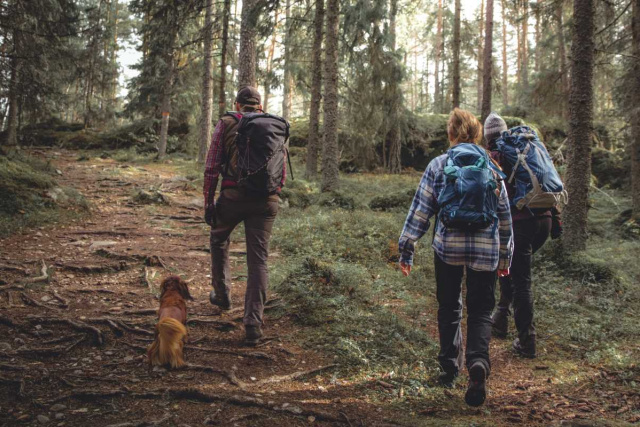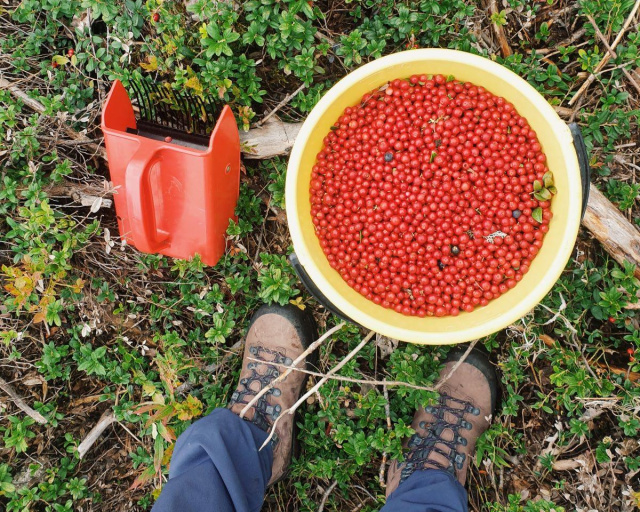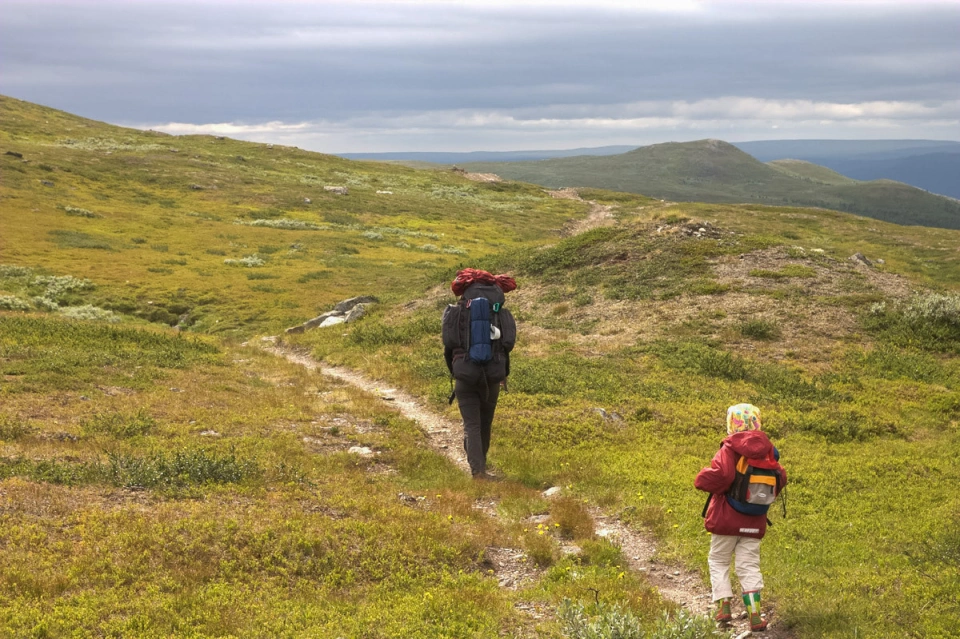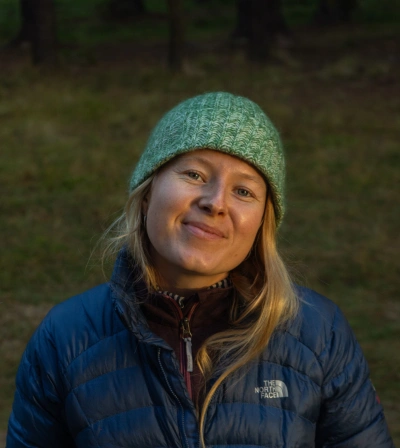While Allemansrätten is not technically a law in itself, it’s written into one of Sweden’s four constitutional laws, and is therefore a significant pillar of Swedish society. This principle is also known in English as “the right of public access” or “the freedom to roam”.
It exists in similar forms throughout the other Scandinavian countries, and it gives everyone the right to roam freely in nature, including walking, cycling, riding, and camping on uncultivated land, even if it's privately owned.

You have the right to pick wild berries and mushrooms, as long as they’re not protected species, and you can set up a tent for one or two nights wherever you’d like, as long as you’re not directly in someone’s garden or close to their house.
This law allows for almost all natural areas in Sweden to be accessed and enjoyed by people for recreation, regardless of land ownership.

There’s no fees to access national parks, and you never have to book a tent spot in advance. The only thing you have to pay is respect for nature and the animals living there. To not disturb and not destroy, and to leave places unchanged or better than you found them.
This freedom and broad access to nature is an important part of Swedish culture, and it inspires a sense of responsibility to take care of our shared environment.
While Allemansrätten is not technically a law in itself, it’s written into one of Sweden’s four constitutional laws, and is therefore a significant pillar of Swedish society. This principle is also known in English as “the right of public access” or “the freedom to roam”.
It exists in similar forms throughout the other Scandinavian countries, and it gives everyone the right to roam freely in nature, including walking, cycling, riding, and camping on uncultivated land, even if it's privately owned.

You have the right to pick wild berries and mushrooms, as long as they’re not protected species, and you can set up a tent for one or two nights wherever you’d like, as long as you’re not directly in someone’s garden or close to their house.
This law allows for almost all natural areas in Sweden to be accessed and enjoyed by people for recreation, regardless of land ownership.

There’s no fees to access national parks, and you never have to book a tent spot in advance. The only thing you have to pay is respect for nature and the animals living there. To not disturb and not destroy, and to leave places unchanged or better than you found them.
This freedom and broad access to nature is an important part of Swedish culture, and it inspires a sense of responsibility to take care of our shared environment.
You might like...

A love letter to the Swedish wilderness

On Folktales and conservation: Mararison Island

The Bradley Method of Bushland Conservation

A place to call home
Newsletter
Sign up to keep in touch with articles, updates, events or news from Kuno, your platform for nature

